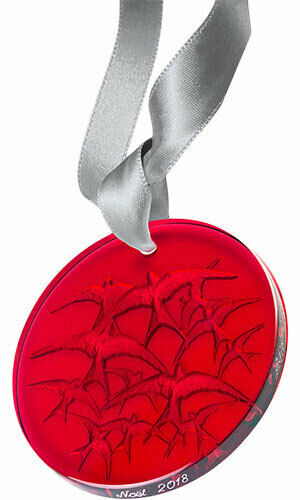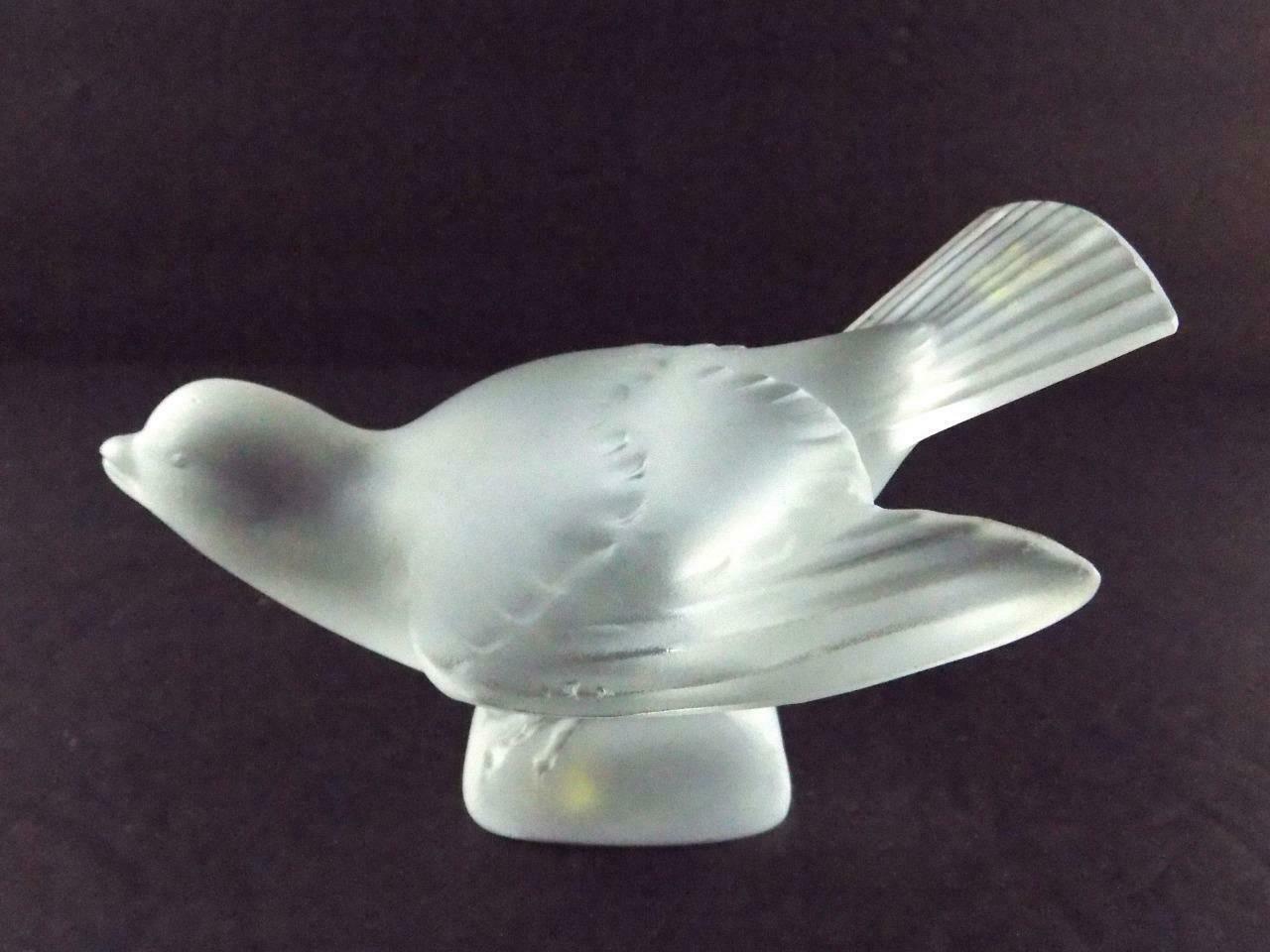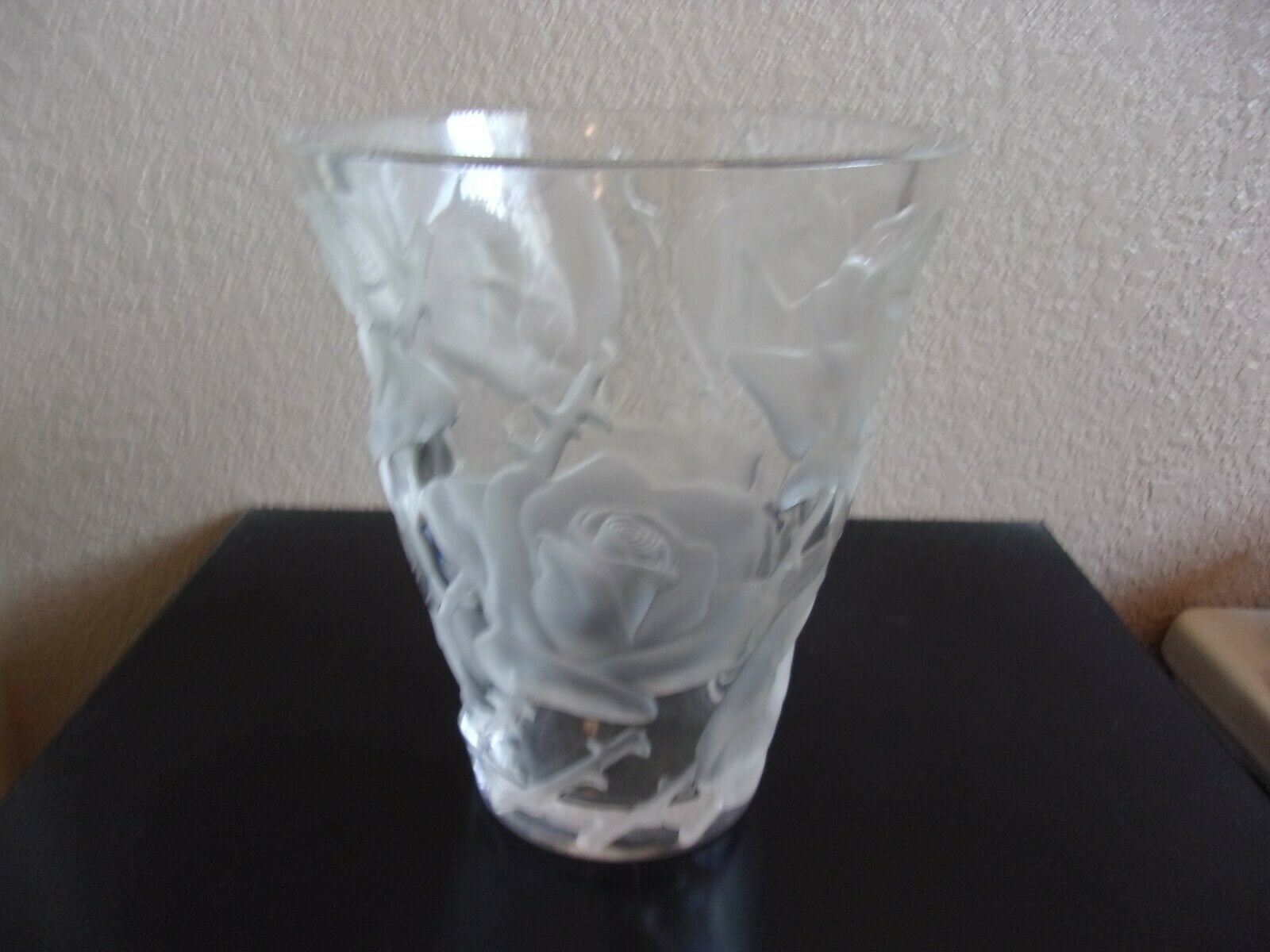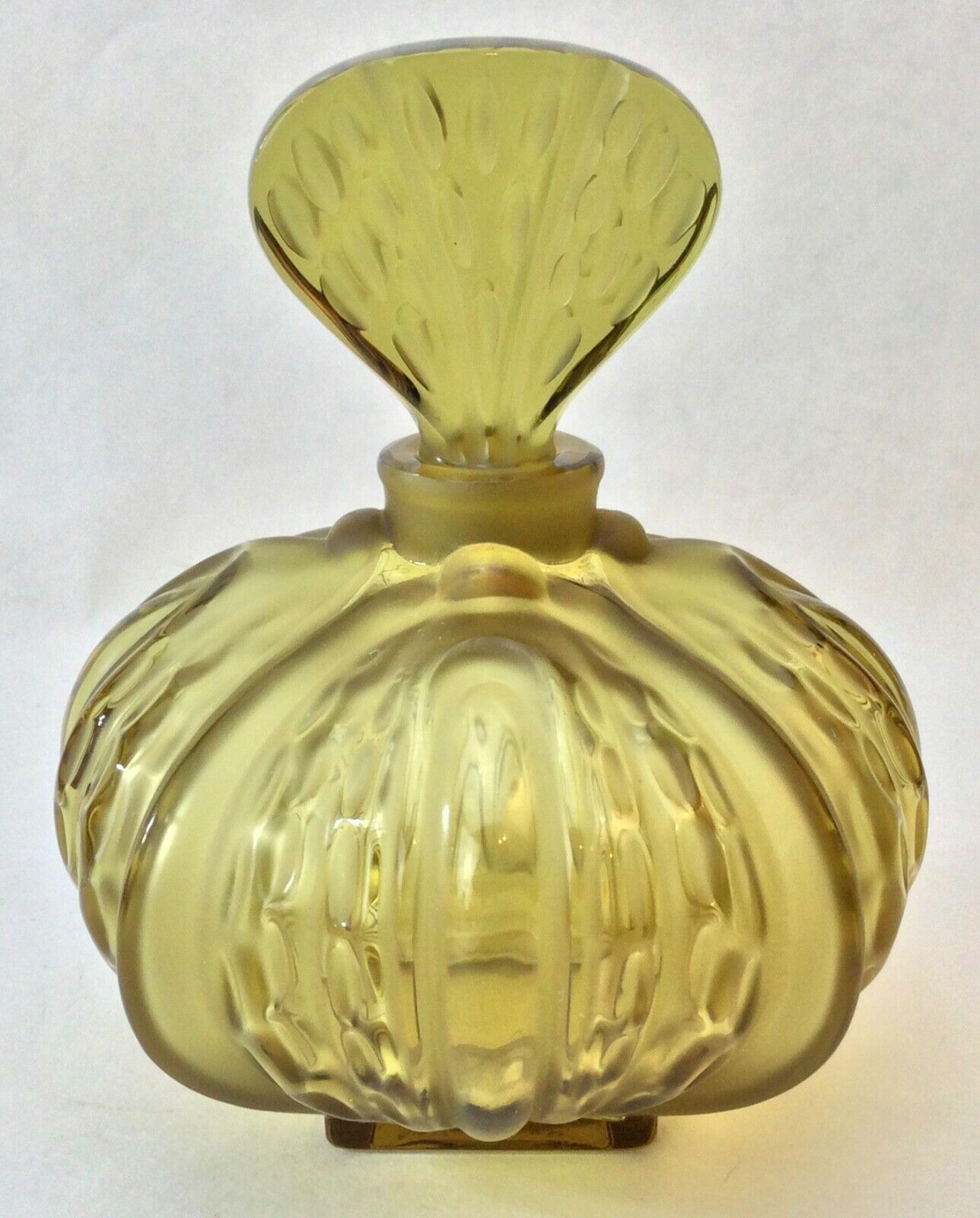-40%
Vintage Lalique France Frosted Gao Pattn Ashtray Cendrier Pin Or Ring Bowl NMINT
$ 63.35
- Description
- Size Guide
Description
welcome!Vintage - Lalique France Frosted Gao Pattern
Ashtray Cendrier Pin or Ring Bowl
- Made in France
in France - Etch Signed - 4 1/2" Diameter - Near MINT
Rene Lalique designed this Gao pattern piece in the 1930s and the company has produced it ever since. Designed to serve as an ashtray (cendrier) or pin, ring, or trinket bowl, the design alternates frosted and clear glass. The glass is 1/4" thick at the scalloped and beveled top edge. The hand etch-marked Lalique signature dates the piece to pre-1978 and after René Lalique's 1945 death, when Marc Lalique, the first-born of René's seven children, took over the company. Please also our notes (below),
Condition Description
, and photographs.
Measures 4 1/4" in diameter across the scalloped 3" in diameter at the clear, round base (4 1/4" in diameter at the outside edges) and 1 1/2" tall/deep.
Lalique French crystal "GAO" decorative art antique bowl having a serpentine infinity design with protruding knobs and scalloped rim.
Lot weight is 1 lb. 1 oz., estimated shipping weight is 1-2 lbs. Will be thoroughly padded and carefully packed for secure, intact arrival.
U.S. Shipments:
Will be insured and shipped USPS Priority Mail.
Notes adapted from Wikipedia:
Lalique was a French designer, best known for his glass art - perfume bottles, vases, jewelry, chandeliers, clocks, and automobile hood ornaments.
René Jules Lalique was born in 1860, in Ay, Marne – 1945, Paris. At the age of two, his family moved to the suburbs of Paris, although they traveled back to Ay for summer holidays. René's experiences in Ay were a defining influence, with many of his jewelry pieces and vases decorated in naturalistic plants, flowers and flowing lines.
After the early death of his father, René became an apprentice to goldsmith Louis Aucoc in Paris. In 1872, at age twelve, he entered the Collège Turgot where he began to study drawing and sketching. He attended evening classes at l'Ecole des Arts Décoratifs and worked there from 1874–1876 when he traveled to London and spent two years at the Crystal Palace School of Art, in Sydenham. At the Sydenham Art College, his skills for graphic design were improved, and his naturalistic approach to art was further developed. He also practiced as an apprentice goldsmith to leading Parisian Art Nouveau jeweler and goldsmith Louis Aucoc.
In Paris, he worked as a freelance artist, designing for French jewelers Cartier, Boucheron, and others. In 1885, he opened his own business, creating his own jewelry and other glass pieces. After 1895, Lalique created pieces for Samuel Bing's Paris shop, the Maison de l'Art Nouveau, which gave Art Nouveau its name. A patron was Calouste Sarkis Gulbenkian, who commissioned more than 140 of Lalique's works over nearly 30 years.
In the 1920s, Lalique's Art Deco work was celebrated, showcased in projects including his walls of lighted glass and elegant colored-glass columns filling the dining room and "grand salon" for the luxury liner, the SS Normandie, and his baptismal font, interior fittings, cross, screens and reredos (back walls of altars) for St. Matthew's Church at Millbrook in Jersey (Lalique's "Glass Church").
He died in 1945, in Paris, and was buried in Père Lachaise Cemetery.
Both unique and commercial works of René Lalique are in public museums around the world including the Museu Calouste Gulbenkian in Lisbon, the Lalique museum of Hakone in Japan, the Musée Lalique [fr] and the Musée des Arts Décoratifs in France, the Schmuckmuseum Pforzheim [de] in Germany, the Victoria and Albert Museum in London, the Metropolitan Museum, the Corning Museum in New York State and the Rijksmuseum in Amsterdam.
please contact me for any question you may have before bidding
bid with confidence
please visit my store (omid5) for more items like this
thanks for looking
michaan 022021 1m50n1 #87














